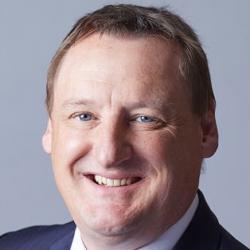Communications, Media Relations and Social Media Strategy - main page
Communications, Media Relations and Social Media Strategy
Communications, Media Relations and Social Media Strategy
May 24 – 27
Chair: Marek Petruš, central bank communications consultant, and former director of the general secretariat, Czech National Bank
Central bank communications have developed significantly over the past few decades. Alongside changes in traditional communication tools, central banks have been challenged to communicate in new ways with their key stakeholders. These new tools have brought with them a number of unavoidable risks, important challenges, and opportunities.
For communication officials in central banks, this has meant that they have been faced with new roles and responsibilities as they transform traditional communication strategies in the digital era and embrace technologies to have an effective online presence.
This course, ‘Communications, Media Relations and Social Media Strategy’, will address critical risks, opportunities, and approaches to successful communication strategies. Participants will gain a deeper understanding of: the challenges for communication associated with the growing impact of financial stability and macro-prudential policy, how to create a crisis communication plan based on real-life examples, developing an effective stakeholder relations function, and methods for aligning social media strategy with central banks’ organisational mandate.
Each day will feature three hours of expert-led live content to maximise the opportunity to share and learn. The course chair will ensure participants have opportunities to network throughout the programme.
APAC timezone: 1pm-4pm (SGT) | 6am-9am (BST) | 1am-4am (EDT)
Course Agenda
Two weeks prior to your training course you will be emailed access to our content hub with course materials, including a trial to Central Banking if you are not already subscribed. There will be a combination of articles, reports and presentations that will contribute to two hours of preparation time for the live content. Presentations for the sessions will also be held here subject to the speaker approval.
Lessons Learned from 2020 and the Pandemic
06:00 – 06:15
Course introduction
Course introduction session led by the chair
06:00 - 06:15
- Introductions and welcome from the chairperson
- Overview of the training course
- Discussion of the delegate expectations
06:15 – 06:45
Macro-prudential policy communications: the brave new world of central bank communications
06:15 - 06:45
- Communication challenges stemming from the growing importance of financial stability, or macro-prudential, policies
- Disparate goals of communications on price stability and financial stability
- Similarities between monetary policy and macro-prudential communication toolkits
- Tips for overcoming challenges for clear and open communication
Marek Petruš
Central bank communications consultant and former director of the general secretariat
Former Czech National Bank
Marek Petruš is an external relations consultant with deep expertise in financial and economic policy communications. He has worked closely with top monetary policymakers as a strategic advisor to governors in the Czech Republic as well as more than a dozen low-to-middle income developing countries. He has been affiliated with the International Monetary Fund as a short-term expert for central bank communications, advising central banks across Eastern Europe, Asia, and Africa to make their policies more transparent and on modernising their communications. His expertise and experience stems from an assignment as Director of Communications and later chancellor at the Czech National Bank (CNB), preceded by a career with the world’s leading news media companies, including Reuters and the Wall Street Journal. During his tenure, the Czech central bank upgraded its policy communications and brought its transparency and communication toolkit into line with global best practices. These advances helped solidify the CNB’s standing as one of the world's most transparent and best communicating central banks.
06:45 – 07:00
First break
06:45 - 07:00
07:00 – 07:45
The media in 2021: new dynamics, challenges and opportunities
07:00 - 07:45
- Key factors, themes and dynamics shaping the media environment in 2021
- New roles and responsibilities of the communication officials in central banks
- Overview of unavoidable risks, critical challenges and emerging opportunities
- Discussion of the relationship between the execution of communication strategies and the performance of central banks’ functions and mandates
Swaha Pattanaik is Global Economics Editor at Reuters Breakingviews, based in London. Previously Reuters’ EMEA financial markets editor, she writes about global financial markets, macroeconomics, and policymaking. She was posted to Paris as Reuters’ senior economics correspondent and to Brussels as its European economic and monetary affairs correspondent. Before then she was the head of the Reuters FX reporting desk in London. Prior to joining Reuters, she worked for Bloomberg, Euromoney, and consulting firm IDEA. She has an MSc in Political Theory and Political Sociology from Birkbeck and a BSc (Econ) in Mathematical Economics and Econometrics from the London School of Economics.
07:45 – 08:00
Second break
07:45 - 08:00
08:00 – 08:45
Workshop: crisis communication as the (new) normal
08:00 - 08:45
- Examples of “crisis communication” to the markets via different tools and channels
- Overview of successful strategies and steps to be avoided
- Implications for relationships with external consumers such as journalists as well as for internal coordination within a central bank
- Hands-on exercise: crisis communication based on real life scenarios
Tamar Baiashvili has been working at the National Bank of Georgia for almost ten years. Her career progressed from a specialist in the Monetary Policy Division to the Deputy Head of Macroeconomics and Statistics Department, responsible for the Monetary Policy formulation. Tamar has been actively involved in the development of monetary policy communications, including the preparation of policy communication documents. She holds a MS degree in Applied Economics and has an academic experience consisting of university teaching as well as scientific publications.
Communication in Practice: Combining New and Tested Tools to Contextualise Messages
06:00 – 06:45
“A little more conversation and a little less action”: the role of plain language
06:00 - 06:45
- Roles and applications of plain language in central banks’ communication
- ‘Tricks of the trade’ for effectively translating technical terms into everyday language
- Overview of key challenges and how to overcome them
- Case study: systemic approach to plain language in Sveriges Riksbank
Marianne Sterner has worked as plain language consultant at Sveriges Riksbank, the central bank of Sweden, for fourteen years. She is part of the strategy group within the Communications Division, which has the task of planning the Riksbank’s communication and adapting it to its various target groups. Marianne has a combined BA degree in Swedish and French and has 35 years of experience as a freelance plain language consultant, mainly in the public sector.
06:45 – 07:00
First break
06:45 - 07:00
07:00 – 07:45
Enhancing the Bank’s ‘voice’ through effective internal communication
07:00 - 07:45
- The central bank’s internal ‘voice’ is as important to its mandates as its external ‘voice’
- The internal ‘voice’ reflects the Bank’s values and culture, determined by the Bank’s leadership
- Forums for building relationships with the Bank’s leadership – especially the ‘C’ suite, management, the Board, HR
- Building an internal communications strategy from Objectives and Principles
- Overview of internal communications tools, channels and frameworks
Mike Hannah has been a regular presenter and commentator in communications and governance for Central Banking. Formerly Head of Communications and Board Secretary at the Reserve Bank of New Zealand, he provides consultancy, training and mentoring (including online delivery) in communications practice and management, stakeholder engagement, publications editing, and governance support.
07:45 – 08:00
Second break
07:45 - 08:00
08:00 – 08:45
Maintaining a social media presence: latest trends in focus
08:00 - 08:45
- The role of social media presence in central bank communication framework
- Overview of key opportunities and risks to be aware of
- Example of how Norges Banks uses social media to make information and decision making more accessible
Oda Faremo Lindholm is an economic historian and works as a senior advisor and community manager in Norges Banks department of communication and external relations. Prior to working in Norges Bank, she worked as a journalist in several different Norwegian newspapers, and as a researcher at Norway’s public broadcaster, NRK. At NRK she also worked extensively with content production to some of NRKs biggest social media profiles. She has also published a successful book (in Norwegian) about critical interaction with social media, called “Bullshitfilteret” (The bullshit filter) .
Embracing Technologies to Reach Wider Audiences
06:00 – 06:45
Taking the pulse: how to know what your public thinks
06:00 - 06:45
- Why is knowing what your public think important?
- What do different types of surveys look like?
- RBNZ case studies: Across currency, regulatory and stakeholder perspective
Mike Hannah has been a regular presenter and commentator in communications and governance for Central Banking. Formerly Head of Communications and Board Secretary at the Reserve Bank of New Zealand, he provides consultancy, training and mentoring (including online delivery) in communications practice and management, stakeholder engagement, publications editing, and governance support.
06:45 – 07:00
First break
06:45 - 07:00
07:00 – 07:45
Maintaining a multimedia media presence: latest trends in focus
07:00 - 07:45
- The role of multimedia in central bank communication framework
- Overview of key opportunities and risks to be aware of
- Tips for aligning an overall multimedia communications strategy to central banks’ organisational mandate
- Examples of the plain language uses and applications
- Case study: Norges Bank
Andreas Andersen is a special advisor at Norges Bank (Central bank of Norway). His experience include leading the public information campaign for Norges Bank’s recently introduced banknote series, the establishment of Norges Bank Education Centre and the establishment of Norges Bank Studios – a small internal visual communications team and facilities for photo, audio/video and graphic design services. He was previously Head of Communication for the central banking operations.
07:45 – 08:00
Second break
07:45 - 08:00
08:00 – 08:45
In search of excellence in websites and digital platforms
08:00 - 08:45
- The unique value of websites and digital publications as communication tools
- Key features of an effective management of the website: setting goals; understanding audiences and their needs; usability tests (demo)
- Examples of effective delivery of announcements, speeches, data and research to the general public and banking professionals
- Case study: Measuring impact - the journey from web metrics to communications impact reporting
Christian Beslmeisl is the Deputy Head of Communications at the Bank for International Settlements (BIS). His team is responsible for the BIS’s website, www.bis.org, its Social Media channels, intranet and for visual communications services. Christian joined the BIS as a Senior Business Analyst in 2002 and in this role was responsible for developing the BIS’s intranet. He has held increasingly responsible positions at the BIS, including Head of Publishing. Prior to joining the BIS, Christian worked for the Deutsche Bundesbank, with his last position being deputy team leader of the eCollaboration team. Christian holds a degree from the Deutsche Bundesbank University of Applied Sciences
Measuring (and Improving) Communication and Engagement
06:00 – 06:45
Designing measurement matrixes and responding to key indicators
06:00 - 06:45
- Design, maintenance and calibration of frameworks for evaluating the effectiveness of diverse central bank communication strategies
- Key features of models, methods and standards combining qualitative and quantitative variables
- Tips for a successful management of issues related to the communications department’s coordination and engagement with other structures within a central bank
- Case study: the Bank of Canada’s analytical matrix
Emma Murphy is a strategy, communications and leadership consultant that worked for the Bank of England for almost 20 years. As part of her role there she developed and implemented the first strategic plans in the Bank of England’s 325-year history. These focused on how best to manage deeply analytical talent while building a more diverse workforce, transforming rigid ways of working, and bringing internal and external communications into the 21st century. Emma also led the division that introduced the Bank’s new approach to communications and has also played central roles in the integration of the Prudential Regulation Authority into the Bank and establishment of the Financial Policy Committee. Emma has advised other central banks around the World, helping adapt lessons learned from the Bank of England’s experience into their differing contexts and has particular expertise in meshing cultural change with the people and communications challenges.
06:45 – 07:00
First break
06:45 - 07:00
07:00 – 07:45
Financial inclusion and education: core elements and challenges
07:00 - 07:45
- Assessment of key global targets, dynamics and factors affecting implementation of financial inclusion
- The technologies and tools for advancing financial inclusion metrics
- Role of financial education in financial inclusion strategy
- Discussion: what does it take to financially educate the unbanked population?
Sachin has over 16 years of international experience in consulting, project management and operations in making financial services accessible to the un/underbanked people in more than 18 different countries. He has hands-on experience in Digital Financial Services (DFS), Microfinance and Financial Inclusion. He has cross-regional work experience of Asia, Africa and Oceania. He has worked with some of the largest Banks, Mobile Network Operators, technology companies, Microfinance institutions and other stakeholders such as Donors, Central banks and other Government bodies. He has strong skills in developing business strategy/models, product development, human centred design, market research, agent network design and management, agency banking, process re-engineering, business transformation and financial awareness.
He is a certified trainer and has conducted many large-scale research studies and has published several papers. He has led technical assistance projects for capacity building of financial institutions and helped them explore alternative delivery channels (e/m banking). The primary focus of his work has always been to design and develop sustainable, effective and innovative systems; products and channels to promote the delivery of a wide range of client-centric, sustainable and technology-enabled financial services. He is an Agricultural Engineering graduate with a management degree.
07:45 – 08:00
Second break
07:45 - 08:00
08:00 – 08:30
Closing remarks and delegate action plans
Concluding session led by the chair
08:00 - 08:30
- Summary of the course
- Discussion of the observed trends and case studies
- Application of learning points in the delegates’ home organisations
- Preparation of action points
The Implementation Workshop is a chair-led forum where attendees will have the opportunity to discuss challenges around implementing the ideas they have learnt during the Live Content. Prior to the workshop you will be emailed questions to prepare in order to gain the most from the session with peers.
09:00 – 10:00
Implementation Workshop
11:00 - 12:00
Benefits of attending the Implementation Workshop:
- Developments in the area since the live content sessions, including new resource material
- Questions arising since returning to the central bank
- Challenges of implementation: where are the roadblocks?
- Medium-term goals: what is realistic?
- Establishment of group network to keep in touch with peers and share best practices
Learning outcomes
At the conclusion of the training, participants will be able to:
- Understand the challenges that financial stability and macro-prudential policy making creates for communication
- Identify pathways to create clear and open communication
- Create a crisis communication plan based on real life examples
- Develop a central banks stakeholder relations function
- Align a social media strategy to the central bank’s organisational mandate
Chair

Marek Petruš
Central bank communications consultant and former director of the general secretariat
Former Czech National Bank
Marek Petruš is an external relations consultant with deep expertise in financial and economic policy communications. He has worked closely with top monetary policymakers as a strategic advisor to governors in the Czech Republic as well as more than a dozen low-to-middle income developing countries. He has been affiliated with the International Monetary Fund as a short-term expert for central bank communications, advising central banks across Eastern Europe, Asia, and Africa to make their policies more transparent and on modernising their communications. His expertise and experience stems from an assignment as Director of Communications and later chancellor at the Czech National Bank (CNB), preceded by a career with the world’s leading news media companies, including Reuters and the Wall Street Journal. During his tenure, the Czech central bank upgraded its policy communications and brought its transparency and communication toolkit into line with global best practices. These advances helped solidify the CNB’s standing as one of the world's most transparent and best communicating central banks.







